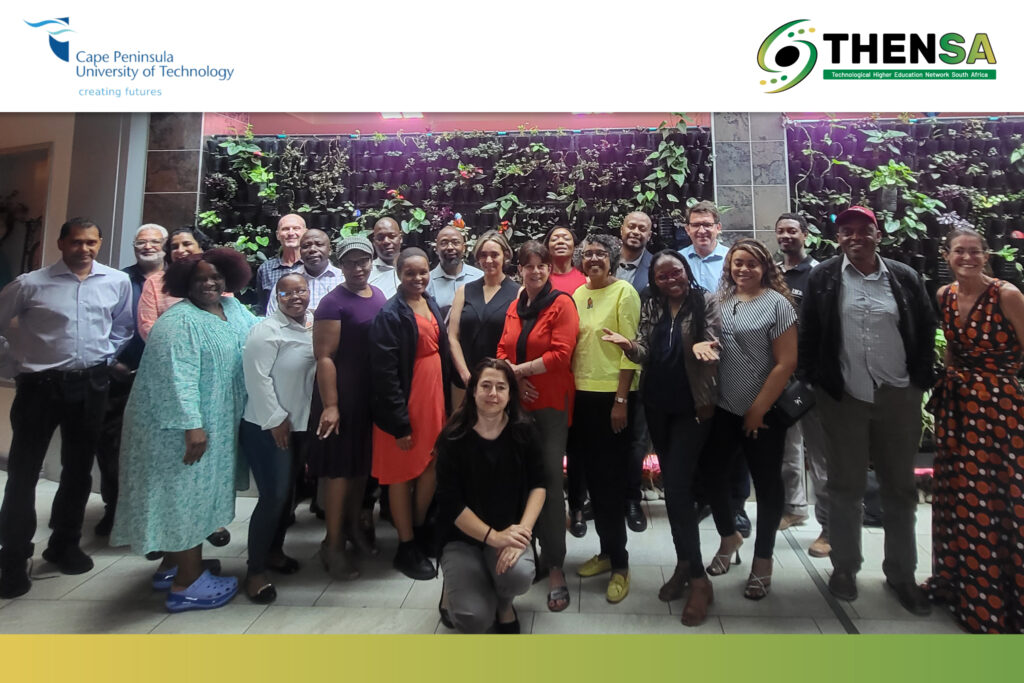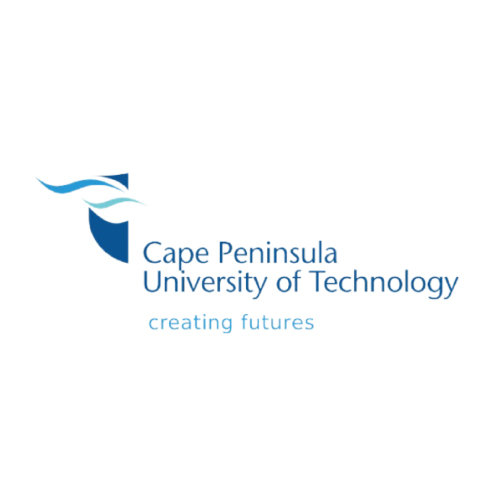As the global technology and innovation landscape continues to evolve, South Africa stands at the cusp of a transformative journey with the birthing of a Deep Tech Venture Builder (DTVB) collaboratively initiated by the Technological Higher Education Network South Africa (THENSA) and the Cape Peninsula University of Technology (CPUT).
The DTVB beckons investors to be part of this journey, contributing to a future where technology not only thrives but becomes a transformative force. As we prepare to implement this groundbreaking initiative, we provide insights here from key participants in the DTVB’s design to highlight the motivation behind, objectives, and potential impact of the DTVB on South Africa’s National System of Innovation (NSI).
Deep Tech: A Conceptual Framework
To set the scene, Mr. Warren La Fleur, Co-founder at Koya Capital, contends that sustained economic growth requires innovation, and the leveraging of innovation is crucial for creating societal goods and achieving competitive differentiation at a national level. Drawing lessons from economies like Singapore, China, and South Korea, he emphasises that translating research into societal good necessitates systems, processes, and infrastructure–an arena where Deep Tech Venture Builders play a pivotal role. According to Mrs. Martha Ikome, Acting Senior Manager and IP Advisor at Vaal University of Technology, Deep Tech refers to complex technologies rooted in advanced scientific principles and engineering innovations. Positioned at the intersection of advanced research and development, Deep Tech provides solutions to intricate problems, contributing to societal and economic upliftment. Building on this description Professor Maureen Nokuthula Sibiya, Deputy Vice-Chancellor: Research, Innovation and Engagement at the Mangosuthu University of Technology, adds that Deep Tech encompasses startups with business models grounded in high-tech innovation, addressing substantial scientific challenges. This resonates as a vital component within the NSI, where research and development (R&D) plays a pivotal role in addressing technological challenges.
A Catalyst for Inclusive Growth
The DTVB concept emerged as a response to the technological challenges alluded to above and aims to correct misalignments, increase access to markets for marginalised groups and foster inclusive growth within the sector. To truly succeed it must be a catalyst for inclusive growth and a transformative force that addresses historical disparities in the innovation landscape. By focusing on Universities of Technology (UoTs) and Historically Disadvantaged Institutions (HDIs), the DTVB will not only unlock the untapped potential within these institutions but also propel them to the forefront of the NSI.
Thus, by investing in the DTVB, investors (hopefully Black investors) will be contributing to the inclusive growth of economies, fostering diversity in innovation, and ensuring that the benefits of technological advancements are shared by all.
A Fit-for-Purpose Design
Central to the DTVB’s design is the pooling of skills and intellectual capital. Prof. Sibiya emphasises the value of this approach, expressing the need for equitable resource sharing among South African universities. The DTVB concept, as outlined by Ms. Makole Magoro, a Technology Transfer Coordinator at the University of Venda, represents a valuable system for South African UoTs to commercialise Deep Tech innovations. According to Mrs. Martha Ikome, the DTVB aims to address NSI shortfalls and frustrations experienced by historically disadvantaged universities, individuals, and rural communities.
“The DTVB differs from conventional venture builders in that it promotes technologies based on scientific or engineering innovations emanating from Intellectual Property with long developmental cycles and complexities.”–Mrs. Martha Ikome
To ensure relevance to the South African context, Dr. Mpumelelo Nkomo, Technology Transfer Manager from Walter Sisulu University, emphasises the efforts made by the founders of the DTVB to generate a fit-for-purpose design, through extensive consultation and participation from stakeholders.
“The DTVB provides a unique opportunity for technopreneurs to ‘grow’ within a team and simultaneously understand the technologies of interest on offer.”–Dr. Mpumelelo Nkomo
Importantly, the DTVB aims to benefit Technology Transfer Offices (TTOs), as highlighted by Mrs. Martha Ikome, by providing skills and knowledge to assist universities in commercialising their technologies.
Deep Tech’s Potential Value to South Africa
Mr. Warren La Fleur described the research-intensive nature of South Africa’s economy and the necessity of innovation and technology to leverage its substantial size and industrial base, noting that much of the required innovation has been imported, resulting in skills arbitrage. Furthermore, he highlighted that there has been substantial investment but mostly in FinTech and IT start-ups (https://thebigdeal.substack.com/p/anamap) Dr. Mpumelelo Nkomo, also highlighted the missed opportunities during the recent pandemic, emphasising the need for a targeted approach to exploit homegrown technologies.
The historical exclusion of marginalised higher-education institutions, disadvantaged individuals, and rural communities from the NSI is also a critical aspect. Prof. Sibiya shed light on the financial challenges faced by historically disadvantaged institutions hindering their role in the NSI. Mrs. Martha Ikome, in speaking about exclusion and disproportionate resource distribution, highlighted the enduring legacy of disparity in the NSI.
Mohlatlego Sebola, Project Coordinator at Sefako Makgatho Health Sciences University, links the NSI’s exclusionary approach to historical spatial planning and resource allocation based on racial profiling, perpetuating injustices.
“Certainly, already there is some evidence in some sectors on how Deep Tech has revolutionised their operations and created opportunities for job creation, which is a by-product of economic growth.”–Mohlatlego Sebola
By South Africans, for South Africans
Addressing the question of relevance to the South African context, Prof. Sibiya emphasised the need for alignment with national and global developmental agendas. The DTVB design incorporates a Gender, Geographic, and Social Inclusion action plan that will ensures that critical elements of inclusion are constantly prioritised for investors and participants, making the products and processes globally acceptable and locally relevant.
Laurel Robertson, Senior Professional Officer: Urban Catalytic Investment in the Directorate: Spatial Planning and Environment at the City of Cape Town, explained that the DTVB is purposefully designed to meet South African needs. Being a consortium of South Africans, the process is adaptive and responsive to the unique requirements of the country.
The DTVB is designed to be South African owned–the Cape Peninsula University of Technology (CPUT), as the lead founding university, takes on a coordinating role, while THENSA will provide support and resources to the ecosystem. The consortium encompasses participants who recognise the imperative to translate research for wider societal benefit.
“CPUT is the instigator in a way. THENSA is providing the support and the necessary resources. The bodies/institutions are participants who see and appreciate the need to translate research in a manner that has a wider societal benefit.”–Laurel Robertson
Revolutionising Technopreneurship
The DTVB distinguishes itself from conventional Venture Builders by leveraging its substantial technology pipeline, building internal capacity among member institutions, and ensuring accessibility to marginalised communities. The approach is not only about creating spin-off companies but also nurturing technopreneurs.
At the heart of the DTVB’s impact is its potential to benefit marginalised institutions and Technology Transfer Offices (TTOs). Mohlatlego Sebola explained that DTVB will assist in resolving challenges faced by TTOs, such as mobilising investments and de-risking technologies, making them more attractive to investors.
“(The) DTVB will assist not only to resolve this but will also help de-risk these technologies and make it easier for investors to invest in them.”–Mohlatlego Sebola
Sebola notes that the DTVB’s current model, which involves forming teams, providing workspace, and mentorship, eliminates barriers to participation for potential technopreneurs. The inclusivity of the model ensures that qualifications are not barriers; instead, the focus is on bringing requisite skills to the teams.
Ensuring inclusion of potential technopreneurs in rural communities is a key aspect. The provision of ‘MacDonaldised’ working spaces at participating institutions and communities, facilitated by municipalities offering floor space, forms a tangible step toward inclusivity. In terms of capacity development, Mrs. Martha Ikome envisions the DTVB providing a unique opportunity for technopreneurs to access the relevant support needed for creating and running successful, sustainable businesses.

Investment Case for the DTVB
The upside of investing in the Deep Tech sector, as demonstrated in the West, was highlighted by Mr. Warren La Fleur, where he referenced how the opportunity is well documented as demonstrated in the United States.
Regarding the venture capital sector in South Africa, Dr. Mpumelelo Nkomo suggests that high-net-worth individuals, especially black investors, stand to benefit from a first-mover advantage in the absence of a true venture capital sector.
“There are opportunities to take technologies to market that have both a huge social impact and yet still provide good economic returns.”–Dr. Mpumelelo Nkomo
Despite South Africa not having a true venture capital sector, there is optimism for the future. Mohlatlego Sebola suggests that with the implementation of the Decadal Plan, a functioning sector will emerge, providing opportunities for funders, regardless of colour, to invest and pioneer the unique South African-developed model.
“…SA doesn’t have a true VC sector. Investing in this sector will not only bring benefits from a first-mover advantage but will also make them pioneers in the unique South African developed model.”–Mohlatlego Sebola
Highlighting the potential for investors, Laurel Robertson underscores the transformative power of DTVB. The initiative not only leads to spin-offs but also enables research with greater societal benefits to materialise. It enhances institutions’ exposure and allows them to draw on the support networks provided through this initiative.
“Spin offs. But also enabling research with greater societal benefit to materialise. Institutions have increased exposure and are able to draw on the support networks provided through this initiative.”–Laurel Robertson
The DTVB will be a catalyst for innovation, inclusivity, and economic growth in South Africa. The collaborative efforts of higher education institutions, researchers, and private sector, as outlined by various voices, paint an attractive picture for potential investors. This is your opportunity to invest in transformation!

For information on the project contact: Dr. Revel Iyer – iy***@cp**.za or Nadira Kercival – in***@th****.za





You really make it seem so easy with your presentation but I find this topic to be really something that I think I would never understand. It seems too complicated and very broad for me. I am looking forward for your next post, I抣l try to get the hang of it!